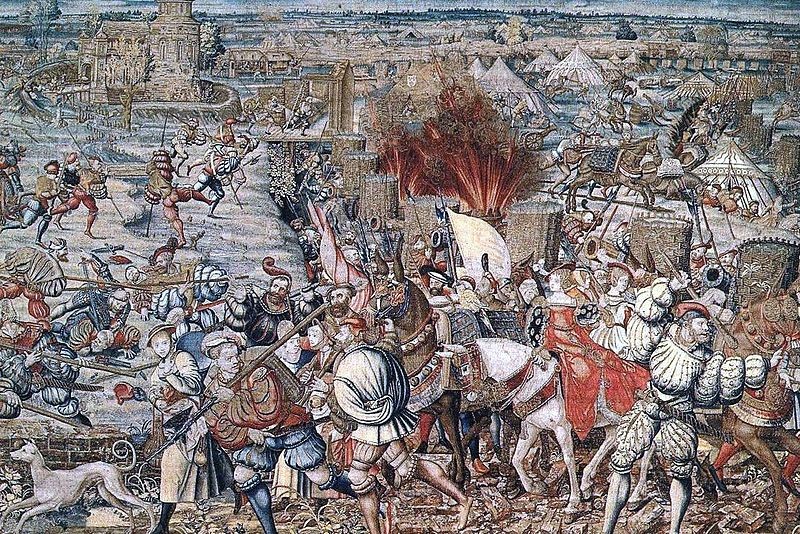Thomas Cromwell: Life Story
Chapter 1: Early Life (c. 1485 - 1512)
Thomas Cromwell was born around 1485 to Walter Cromwell and his wife, Katherine Meverell. Walter was a blacksmith, brewer and tradesman in the district of Putney, south London, although the Cromwells originally came from Norwell in Nottinghamshre. The family was reasonably prosperous, and Walter served in the usual local offices of juryman and constable. However, he often fell foul of the law himself, and was repeatedly fined for breaking the assize of ale, brawling and even fraud. Tradition has it that Cromwell and his father were on poor terms, but whether that is true or not, he was certainly on good terms with his sisters, as evidenced by his later support of their families.
The level of education Cromwell received formally is unknown – given his class and background it is likely he would have been sent to school to read, write and pick up some Latin, as well, of course, as being taught the practice of his religion. At some time, perhaps around the turn of the century, he left England for Europe. The Imperial Ambassador, Chapuys, claimed this was following a brief spell of imprisonment, and Cromwell himself told Archbishop Cranmer that he had been a “ruffyan…in his younger days”. Other sources say it was owing to falling out with his father. Maybe both, or neither, are true.
Over the following years Cromwell became, first, a mercenary in the French army, involved in the terrible defeat the French suffered at Garigliano in December 1503, and second, the servant of an Italian merchant. A near-contemporary account says that the merchant found Cromwell begging in the street, and, recognising an Englishman far from home, took pity on him and helped him. The merchant in question was Frescobaldo Frescobaldi, head of the eponymous Florentine banking house. The Frescobaldis had been bankers to English and other European kings since the twelfth century, and had an office and wide network in London. Cromwell’s master, in fact, spent most of his time in London, although Cromwell entered his service in Florence.

Whilst in the service of the banker, Cromwell not only picked up his phenomenal business acumen, but also developed tastes and interests that influenced him for the rest of his life. Exposed to the art and literature of Renaissance Italy, and particularly of Michelangelo, who traded works for wine with Frescobaldi, he acquired an interest in the new artistic styles in painting and production of high-quality, beautiful items. He continued to be a lover of Italian culture for the rest of his life. The same chronicler (Bardello) who told the story of his meeting with Frescobaldi describes Cromwell as
“quick-witted and prompt of resolution, knowing excellent well to accommodate himself to the wishes of others, and could…dissemble his purpose better than any man in the world.”
Nothing in his later life gives the lie to this description!
Cromwell is next heard of working with a cloth-merchant in Antwerp, perhaps in connection with Frescobaldi’s business, or perhaps for the chance to learn about a trade that was extremely important to England and thus might give opportunities for the future. Once he had learnt enough, he began to trade on his own account.




